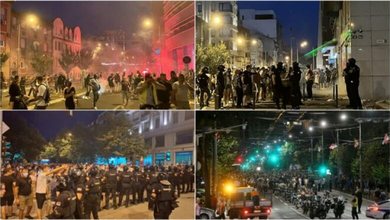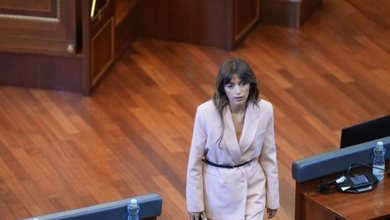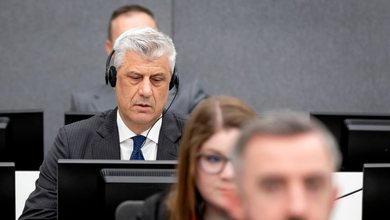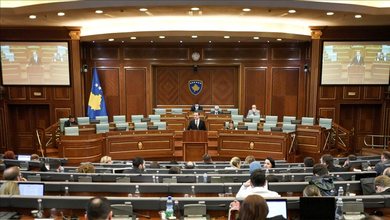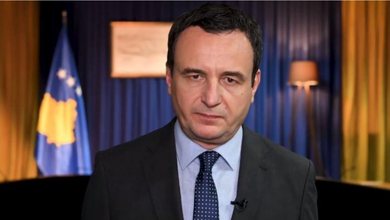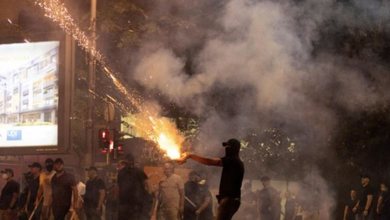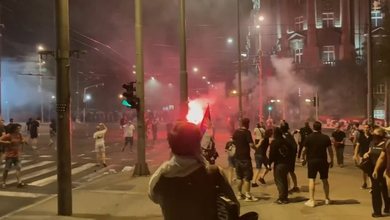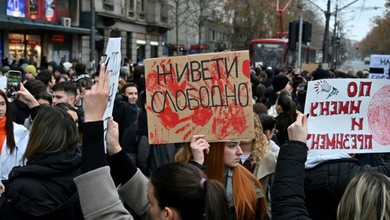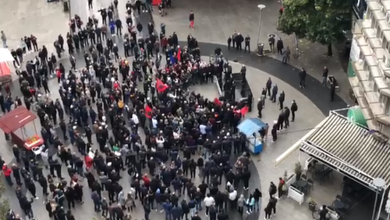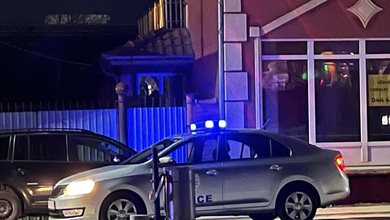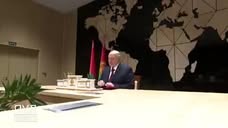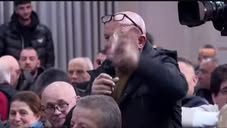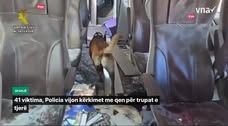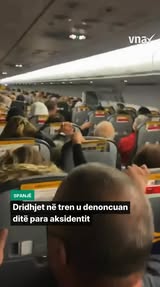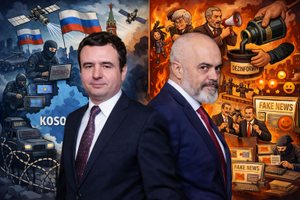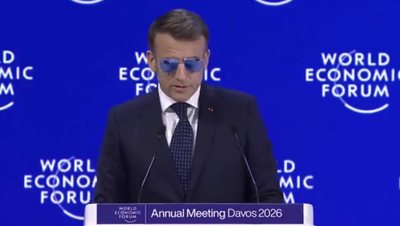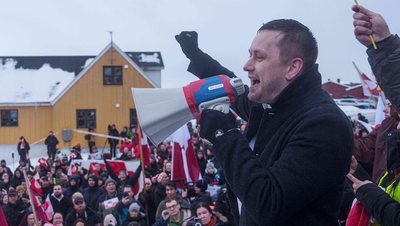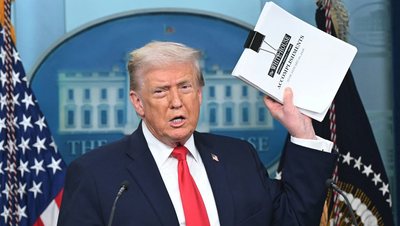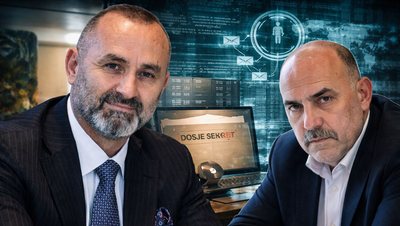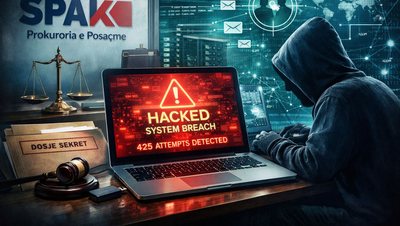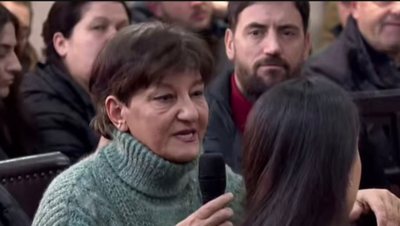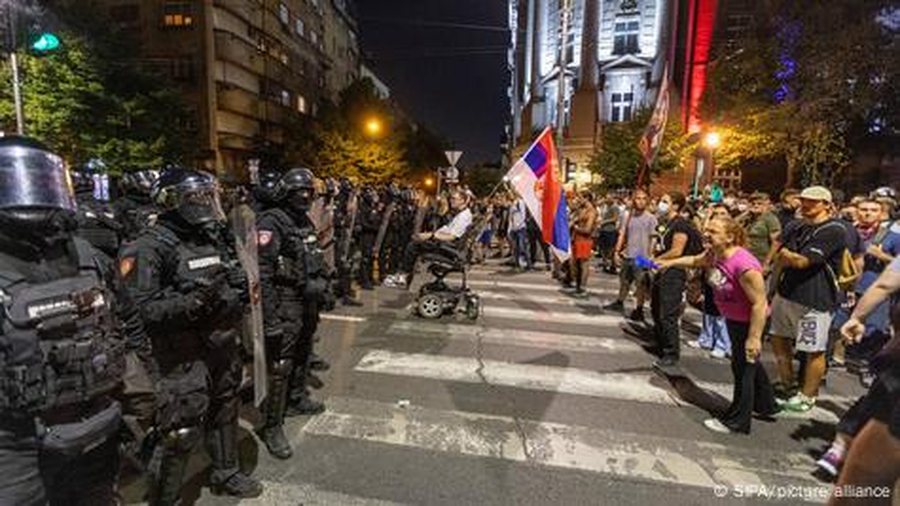
After nine months of relatively peaceful protests, Serbia's streets are no longer filled with peaceful marches, but with scenes resembling a state of war. Clashes between demonstrators and police, batons, tear gas, smoke bombs, fireworks and destroyed offices of the ruling Serbian Progressive Party (SNS) are repeated night after night across the country.
Neda Vrebac from the Novi Sad Citizens' Assembly has been on the streets for months. She says people are angry and that the violence on the streets is just a reaction to the regime's violence.
"We found ourselves in front of bayonets, without realizing it at all," Vrebac tells DW. "I personally, but also other citizens who regularly participate in protests, feel very worried, insecure, and this is a consequence of the fact that we live in fascism, with all its manifestations," Vrebac adds.
Protesters on the streets often do not know whether they are clashing with police or paramilitary forces from Aleksandar Vučić's SNS party. Videos are circulating on social media showing groups of young people with sticks and other objects attacking protesters. Media reports say that among the SNS and Vučić supporters there are people who have previously been convicted of attempted murder, violent behavior, and even a former fan leader who was convicted of the murder of French fan Brice Taton in 2009.
"The government, with the help of party criminals, declared war on the streets against the citizens. But there is no retreat, we are burned to the core, the citizens say. They have understood that with the mafia and the paramilitaries there is no democracy, that there are no more talks with the mafia except for the handover of power," Radivoje Jovović from the Movement of Free Citizens told DW.
He believes that the violence on the streets is the result of the government's nervousness, which is unable to resolve the crisis.
"It is the government that refused to accept the just demands of the protest, that started trampling on the roses. But these roses turned out to be thorns. The SNS did not believe us when we said 'beware of the wrath of a patient man' and now they have committed crimes that have hastened their end," adds Jovović.
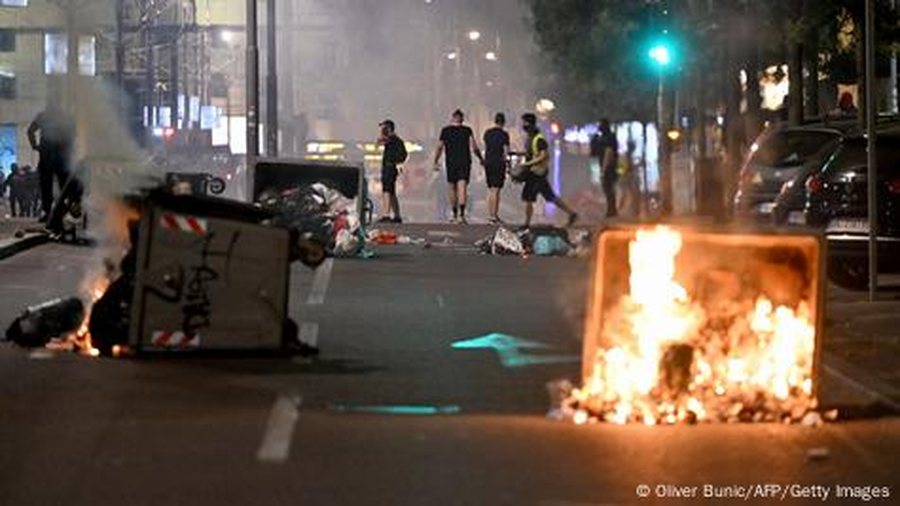
The state's response
Meanwhile, the police have also begun to use violence. Citizens and the media have recorded numerous examples of police brutality on camera. A student from Belgrade, Nikolina Singjelic, testified that the commander of a facility security unit, Marko Kricak, "slapped her and slammed her head against the wall," calling her a "whore."
"He threatened to strip me and rape me in front of everyone, for everyone to see. I was very scared," she told N1 television.
Mass arrests soon followed. Some regime media outlets published footage showing young men kneeling against a wall with their hands behind their backs, with a police officer standing behind each of them.
The scenes are reminiscent of images from war camps, and Neda Vrebac. Three of the people arrested and kneeling with their heads against the wall were not involved in the protests at all. One of them is Vukashin Kurilic, whose family she knows personally.
"They arrested him on his way home from the store. He was carrying several bags in his hand. Like a little child, he said he didn't do anything. They searched him, found an asthma inhaler on him and thought it was pepper spray and put him in a police van. He had never broken any laws," Neda Vrebac tells DW.
Vucic threatens "harsh response"
Serbian President Aleksandar Vucic promised a harsh response from the state within days, but denied that a state of emergency would be declared. "At a certain point, you will see the full determination of the state of Serbia. We will use everything we have at our disposal to restore order and peace in our country. We will do this. We will resist all external pressure, all those who threaten us, who warn us and tell us what to do in our country. They have managed to bring chaos to our country, but we will win," Vucic said.
At a press conference, he accused the students and citizens who are protesting of overthrowing the state, comparing them to fascists and Nazis. It is only a matter of days before they kill someone, he said.
Many people fear the violent scenario
. "I fear for human lives. Our lives, the lives of innocent citizens, children, activists," says Neda Vrebac. But she fears that the regime could even kill someone from its own ranks in order to escalate the violence even further.
"I think he is ready for anything, because there are huge amounts of money and mafia around him. And you know how the mafia works," says Neda Vrebac.
The state of powerlessness remains.
Retired Professor of the Faculty of Political Science, Zoran Stojilković, calls this situation a balance of powerlessness in which neither side has the decisive advantage and no clear strategy.
"I think that Vučić himself does not want a state of emergency, because he does not have the capacity to maintain it when people are not willing to respect it. It is clear that citizens are not willing to do this. What is desirable is of course for some kind of dialogue to take place, for there to be relatively fair electoral conditions and elections within a few months by the end of this or the beginning of next year," Stojilković assessed.
That's why it's crucial that students who still believe mobilize citizens for a political victory. "You have to clearly show people what they'll get if they win and what needs to be done to ensure that things like this never happen again," Stojilković adds.
Otherwise, there could be other scenarios in Serbia that could lead to mass protests and strikes, with constant violence and uncertainty./DW


